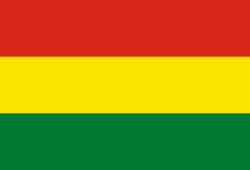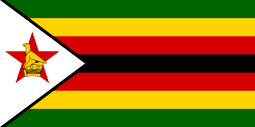Left-wing populism
Left-wing populism is a political ideology which combines left-wing politics and populist rhetoric and themes. The rhetoric of left-wing populism often consists of anti-elitist sentiments, opposition to the system and speaking for the "common people".[1] The important themes for left-wing populists usually include anti-capitalism, social justice, pacifism and anti-globalization, whereas class society ideology or socialist theory is not as important as it is to traditional left-wing parties.[2] The criticism of capitalism and globalization is linked to anti-Americanism, which has increased in the left populist movements as a result of unpopular United States military operations, especially those in the Middle East.[3] It is considered that the populist left does not exclude others horizontally and relies on egalitarian ideals.[1] Some scholars point out nationalist left-wing populist movements as well, a feature exhibited by Kemalism in Turkey for instance.[4] For left-wing populist parties supportive of minority rights among others, the term "inclusionary populism" has been used.[5]
With the rise of Greek Syriza and Spanish Podemos during the European debt crisis, there has been increased debate on new left-wing populism in Europe.[6][7]
By country
European countries
Germany

The Party of Democratic Socialism was explicitly studied under left-wing populism, especially by German academics.[8] The party was formed after the reunification of Germany and it was similar to right-wing populists in that it relied on anti-elitism and media attention provided by a charismatic leadership.[9] The party competed for the same voter base with the right-wing populists to some extent, although it relied on a more serious platform in Eastern Germany. This was limited by anti-immigration sentiments preferred by some voters, although the lines were for example crossed by Oskar Lafontaine, who used a term previously associated with the Nazi Party, Fremdarbeiter ("foreign workers"), in his election campaign in 2005.[9] The PDS merged into the Left Party in 2007.[10]
Greece
Syriza, which became the largest party since January 2015 elections, has been described as a left-wing populist party after their platform incorporated most demands of the popular movements in Greece during the government-debt crisis. Populist traits in Syriza's platform include growing importance of "the People" in their rhetoric and "us/the people against them/the establishment" antagonism in campaigning. On immigration and LGBT rights, Syriza is inclusionary. Syriza itself does not accept the label "populist".[11][12]
Netherlands
The Socialist Party has run a left-wing populist platform after dropping its communist course in 1991.[13] Although some have pointed out that the party has become less populist over the years, it still includes anti-elitism in its recent election manifestos.[14] It opposes what it sees as the European superstate.
Spain
.jpg)
The left-wing populist party Podemos achieved 8 percent of the national vote in the 2014 European Parliament election. Due to avoiding nativist language typical with right-wing populists, Podemos is able to attract all leftist voters disappointed with the political establishment without taking sides in the regional political struggle.[15] At the 2015 election for the national parliament, Podemos reached 20.65% of the vote and became the third largest party in the parliament after the conservative People's Party with 28.71% and the Spanish Socialist Workers' Party with 22.02%. In the new parliament, Podemos holds 69 out of 350 seats and this result ended the traditional two-party system of Spain.[16]
United Kingdom
South American countries
Argentina
Cristina Fernández de Kirchner (the President of Argentina from 2007 to 2015) and her husband Néstor Kirchner were said to practice Kirchnerism, a variant of Peronism that was often mentioned alongside other early 21st century Latin American left-wing populist movements in Boliva and Venezuela. During Cristina Fernández de Kirchner time in office, she often engaged in criticism of the United States, gave speeches with anti-globalization overtones and sought to form economic alliances with non-Western countries such as China and Russia, with some degree of success. She has also repeatedly spoken against capitalism in general. Her administration was characterized by marked tax increases, especially on agricultural produce, Argentina's main export. In 2009, she instated the universal allocation per child subsidy (commonly referred to as AUH in Argentina, Asignación Universal por Hijo), a means-tested benefit to families with children who qualified for the program (despite its name, the AUH is not a universal subsidy).
Bolivia
The leadership of Siles Zuazo practiced left-wing populism[17] as well as that of incumbent socialist President Evo Morales.[18]
Ecuador
Rafael Correa, the President of Ecuador, has stressed the importance of a "populist discourse" and has integrated technocrats to work within this context for the common Ecuadorians. In the conflict between the indigenous peoples and the government, Correa has blamed foreign non-governmental organizations for exploiting the indigenous people.[19][20][21]
Venezuela
The presidency of Hugo Chávez resembled a combination of folk wisdom and charismatic leadership with doctrinaire socialism.[18] Chávez's government was also described to have been a "throwback" to populist nationalism and redistributivism.[22]
United States

2016 presidential candidate and Senator Bernie Sanders has been described as a populist.[23]
Senator Elizabeth Warren has been described as a populist.[24][25]
Left-wing populist political parties
Current left-wing populist parties or parties with left-wing populist factions
Represented in national legislatures







































Not represented in national legislatures
















See also
- New Left
- Pink tide
- Popular socialism
- Populism
- Right-wing populism
- Ernesto Laclau and Chantal Mouffe - post-Marxist theorists who have argued in favour of left-wing populism
References
- 1 2 Albertazzi and McDonnell, p. 123.
- ↑ Zaslove, Andrej (June 2008). "Here to Stay? Populism as a New Party Type". European Review. 16 (03): 319–336. doi:10.1017/S1062798708000288.
- ↑ Hartleb, Florian (2004). Rechts- und Linkspopulismus. Eine Fallstudie anhand von Schill-Partei und PDS [Right and left populism. A case study based on Schill Party and PDS] (in German). Wiesbaden. p. 162.
- ↑ Ozel, Soli (April 2003). "After the tsunami". Journal of Democracy. 14 (2): 80–94. doi:10.1353/jod.2003.0043.
- ↑ Mudde, C. Antonio; Rovira Kaltwasser, C. (2013). "Exclusionary vs. inclusionary populism: comparing contemporary Europe and Latin America". Government and Opposition. 48 (2): 147–174.
- ↑ Mudde, Cas (17 February 2015). "The problem with populism". The Guardian. Retrieved 22 June 2015.
- ↑ Zabala, Santiago (2 December 2014). "In Europe, not all populist parties are the same". AlJazeera. Retrieved 22 June 2015.
- ↑ De Lange, Sarah (December 2005). "Political extremism in Europe". European Political Science. 4: 476–488. doi:10.1057/palgrave.eps.2210056.
- 1 2 Albertazzi and McDonnell, p. 132.
- ↑ Albertazzi and McDonnell, p. 133.
- ↑ Stavrakaki, Yannis; Katsambekis, Giorgos (June 2014). "Left-wing populism in the European periphery: the case of SYRIZA". Journal of Political Ideologies. 19 (2): 119–142. doi:10.1080/13569317.2014.909266. Retrieved 22 June 2015.
- ↑ Katsourides, Yiannos (2016). Radical Left Parties in Government: The Cases of SYRIZA and AKEL. Palgrave Macmillan. pp. 103ff.
- ↑ Andeweg, R. B.; Galen A. Irwin (2002). Governance and politics of the Netherlands. Basingstoke: Palgrave Macmillan. p. 51. ISBN 0333961579.
- ↑ Otjes, Simon; Louwerse, Tom (2013). "Populists in Parliament: Comparing Left-Wing and Right-Wing Populism in the Netherlands". Political Studies. doi:10.1111/1467-9248.12089.
- ↑ Carlos de la Torre (11 December 2014). The Promise and Perils of Populism: Global Perspectives. University Press of Kentucky. p. 211. ISBN 978-0-8131-4687-4.
- ↑ Entscheidung in Spanien: Konservative sind Wahlsieger, verlieren aber Mehrheit. Spiegel Online, 20 Demcember 2015 (German)
- ↑ Mayorga, Rene Antonio (January 1997). "Bolivia's Silent Revolution". Journal of Democracy. 8 (1): 142–156. doi:10.1353/jod.1997.0006.
- 1 2 Kirk Andrew Hawkins, Venezuela's Chavismo and Populism in Comparative Perspective. New York: Cambridge University Press, 2010, ISBN 978-0-521-76503-9, page 84
- ↑ de la Torre, Carlos (2013). Populismus in Lateinamerika. Zwischen Demokratisierung und Autoritarismus (PDF) (in German). Friedrich Ebert Stiftung.
- ↑ Carlos de la Torre (2010). Populist Seduction in Latin America. Ohio University Press. p. 173.
- ↑ Raúl L. Madrid (2012). The Rise of Ethnic Politics in Latin America. Cambridge University Press. p. 75.
- 1 2 Steve Ellner & Daniel Hellinger, eds., Venezuelan politics in the Chávez era: class, polarization, and conflict. Boulder: Lyne Rienner, 2003, ISBN 1-58826-297-9, page 67
- ↑ Cassidy, John (3 February 2016). "Bernie Sanders and the New Populism". The New Yorker. Retrieved 24 August 2017.
- ↑ Forget Trump – populism is the cure, not the disease
- ↑ Is Charlie Baker really more popular in Boston than Elizabeth Warren?
- ↑ Juan José Cruces (February 21, 2016). "El puchero de gallina del populismo kirchnerista" [The chicken pot of the Kirchnerite populism] (in Spanish). La Nación. Retrieved February 9, 2017.
- ↑ "En clave populista, el Frente de Izquierda prepara una demostración de fuerza en Atlanta" [The Worker's left front prepares a display of power in a populist tone] (in Spanish). Infocielo. November 19, 2016. Retrieved September 28, 2017.
- ↑ Karl Oberascher (27 June 2017). "Welche Chancen hätte eine "Liste Peter Pilz"?". Kurier. Retrieved 28 October 2017.
- 1 2 "South America's New Caudillos". The New York Times. October 16, 2014. Retrieved February 18, 2017.
- ↑ Eduardo Porter (May 3, 2016). "Populist Policies Let Brazil's Tomorrow Slip Away". The New York Times. Retrieved February 9, 2017.
- ↑ "Živi zid: socijal-populizam na hrvatski način". Tportal. 21 January 2015. Retrieved 25 June 2015.
- 1 2 3 4 Pausch, Robert (4 February 2015). "Populismus oder Extremismus? – Radikale Parteien in Europa" – via Die Zeit.
- ↑ "Rechtspopulistische Parteien in Tschechien. - Vile Netzwerk". www.vile-netzwerk.de.
- ↑ Nordsieck, Wolfram. "Parties and Elections in Europe". www.parties-and-elections.eu.
- 1 2 Denis Tugdual (5 April 2013). "Le Pen-Mélenchon: la mode est au langage populiste". L'Express (in French).
- 1 2 Jean-Laurent Cassely (15 April 2013). "Le populisme "vintage" de Jean-Luc Mélenchon, trop élaboré pour être efficace". Slate (in French).
- ↑ Professor of Politics Michael Keating; Professor David McCrone, eds. (2013). The Crisis of Social Democracy in Europe. Edinburgh University Press. p. 147. ISBN 978-0748665822.
- ↑ Katsambekis, Giorgos. "Left-wing Populism in the European Periphery: The Case of SYRIZA". academia.edu.
- ↑ Strippoli, Francesco. "Emiliano, populista inconsapevole".
- ↑ "Alles ist möglich - onvista". onvista.de.
- ↑ Rüb, Matthias; Rom. "Koalition Fünf Sterne und Lega: Neue Regierung in Italien wird Freitag vereidigt" – via www.faz.net.
- ↑ "Kabinett Conte: Euro-Kritiker Savona (81) wird Europaminister". 31 May 2018.
- ↑ Andeweg, R. B.; Galen A. Irwin (2002). Governance and politics of the Netherlands. Basingstoke: Palgrave Macmillan. p. 51. ISBN 0333961579.
- ↑ Učeň, Peter (14 February 2016). "Populizmus Smeru... má to ešte vôbec význam?".
- ↑ http://www.bisla.sk/sk/wp-content/uploads/2015/05/Chamulova_Barbora-Bakalarska_praca.pdf
- ↑ Kern, Miro. "11 nesplnených alebo meškajúcich sľubov premiéra Fica".
- ↑ "Red Tide: From 'economic freedom' to 'white genocide', extremism grabs the spotlight (in English)". Daily Maverick. 14 October 2013. Retrieved 1 November 2013.
- ↑ Cristóval Rovira Kaltwasser (2014). Carlos de la Torre, ed. Explaining the Emergence of Populism in Europe and the Americas. The Promise and Perils of Populism: Global Perspectives. University Press of Kentucky. p. 211. ISBN 978-0-8131-4687-4.
- ↑ Christopher Ross; Bill Richardson; Begoña Sangrador-Vegas (2016). Contemporary Spain. Routledge. p. 75. ISBN 978-1-317-75164-9.
- ↑ Cas Mudde (17 February 2015). "The problem with populism". The Guardian.
- ↑ Tekdemir, Ömer (20 February 2015). "Is a socialist EU possible via left-wing populist parties such as Syriza, Podemos and the HDP?". openDemocracy.
- ↑ Bush, Stephen (4 January 2017). "Labour is running a great risk with its populist turn". New Statesman. Retrieved 16 June 2017.
- ↑ Merrick, Jane (11 May 2017). "Can left-wing populism win the UK election?". cnn.com. Retrieved 16 June 2017.
- ↑ Riddell, Mary (1 October 2013). "Ed Miliband's populism has turned him into the Tories' Red Peril". telegraph.co.uk. Retrieved 23 June 2017.
- ↑ Suiter, Jane (2017). "Ireland: The rise of Populism on the Left and Among Independents". In Toril Aalberg; Frank Esser; Carsten Reinemann; Jesper Strömbäck; Claes H. de Vreese. Populist Political Communication in Europe. New York and London: Routledge. p. 131. ISBN 978-1-138-65480-8.
- ↑ "More liberal, populist movement emerging in Democratic Party ahead of 2016 elections", By Zachary A. Goldfarb. The Washington Post. November 30, 2013. Retrieved April 15, 2017.
- ↑ "The Left's Unpopular Populism", By Amitai Etzioni. The Atlantic. January 8, 2015. Retrieved April 15, 2017.
- ↑ "America in Populist Times: An Interview With Chantal Mouffe", By Waleed Shahid. The Nation. December 15, 2016. Retrieved April 15, 2017.
- ↑ "Left-Wing Populists in Latin America?" (PDF).
- ↑ Drinkwater, Michael (1991). The State and Agrarian Change in Zimbabwe's Communal Areas. Basingstoke: Palgrave-Macmillan. pp. 93–96. ISBN 978-0312053505.
- ↑ Fred Reinhard Dallmayr (199). Border Crossings: Toward a Comparative Political Theory. Lexington Books. p. 136. ISBN 9780739100431.
To provide an Islamic justification for their populist program, Mojahedin often utilized the euphemism coined by Shariati.
- ↑ "Populism in Ukraine in a Comparative European Context (in English)" (PDF). Problems of Post-Communism, vol. 57, no. 6, pp. 3-18. November–December 2010. Retrieved 29 November 2013.
- ↑ "Populists, the Elites, and Us". Retrieved 10 August 2017.
- ↑ "Fighting Faux Populism". Retrieved 10 August 2017.
- ↑ Cas Mudde (2008-11-10). "Radikale Parteien in Europa – bpb". bpb.de. Retrieved 2015-09-25.
Further reading
- Albertazzi, Daniele; McDonnell, Duncan (2008). Twenty-First Century Populism. Palgrave MacMillan. ISBN 9780230013490.
- Weyland, Kurt (2013). "The Threat from the Populist Left". Journal of Democracy. 24 (3): 18–32. doi:10.1353/jod.2013.0045.
- March, Luke (2007). "From Vanguard of the Proletariat to Vox Populi: Left-Populism as a 'Shadow' of Contemporary Socialism". SAIS Review of International Affairs. 27 (1): 63–77. doi:10.1353/sais.2007.0013.
External links
- "The winds are changing: a new left populism for Europe". London School of Economics. Eurocrisis in the Press. 2015.